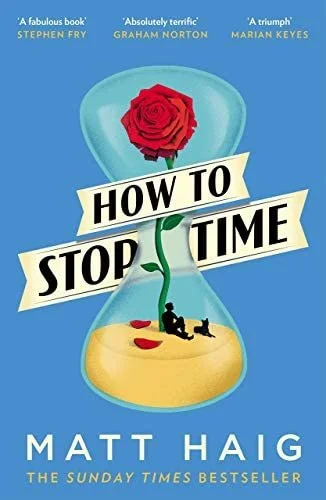December 2022 Books
Dune
Frank Herbert
Set on the desert planet Arrakis, Dune is the story of the boy Paul Atreides, heir to a noble family tasked with ruling an inhospitable world where the only thing of value is the “spice” melange, a drug capable of extending life and enhancing consciousness. Coveted across the known universe, melange is a prize worth killing for....
When House Atreides is betrayed, the destruction of Paul’s family will set the boy on a journey toward a destiny greater than he could ever have imagined. And as he evolves into the mysterious man known as Muad’Dib, he will bring to fruition humankind’s most ancient and unattainable dream.
A stunning blend of adventure and mysticism, environmentalism and politics, Dune won the first Nebula Award, shared the Hugo Award, and formed the basis of what is undoubtedly the grandest epic in science fiction.
Untrustworthy
Bonnie Kristian
Which media outlets will help me be a responsible news consumer? How do I know what is true and whom I can trust? What can I do to combat all the misinformation and how it's impacting the people I love?
Many Americans are agonizing over questions such as these, feeling unsure and overwhelmed in today's chaotic information environment
American life and politics are suffering from a raging knowledge crisis, and the church is no exception. In Untrustworthy, Bonnie Kristian unpacks this crisis and explores ways to combat it in our own lives, families, and church communities.
Drawing from her extensive experience in journalism and her training as a theologian, Kristian explores social media, political and digital culture, online paranoia, and the press itself. She explains factors that contribute to our confusion and helps Christians pay attention to how we consume content and think about truth. Finally, she provides specific ways to take action, empowering readers to avoid succumbing to or fueling the knowledge crisis.
How to Inhabit Time
James K. A. Smith
Many Christians live a faith that is "nowhen." They are disconnected from the past or imagine they are somehow "above" the flux of history, as if every generation starts with a clean state. They lack an awareness of time and the effects of history--both personal and collective--and thus are naive about current issues, prone to nostalgia, or fixated on the end times and other doomsday versions of the future.
Popular speaker and award-winning author James K. A. Smith explains that we must reckon with the past in order to discern the present and have hope for the future. Integrating popular culture, biblical exposition, and meditation, he helps us develop a sense of "temporal awareness" that is attuned to the texture of history, the vicissitudes of life, and the tempo of the Spirit.
Smith shows that awakening to the spiritual significance of time is crucial for orienting faith in the twenty-first century. It allows us to become indebted to the past, oriented toward the future, and faithful in the present.
How to Stop Time
Matt Haig
How many lifetimes does it take to learn how to live?
Tom Hazard has a dangerous secret. He may look like an ordinary 41-year-old history teacher, but he's been alive for centuries. From Elizabethan England to Jazz-Age Paris, from New York to the South Seas, Tom has seen it all. As long as he keeps changing his identity he can keep one step ahead of his past - and stay alive. The only thing he must not do is fall in love . . .
Four Thousand Weeks: Time Management for Mortals
Oliver Burkeman
The average human lifespan is absurdly, insultingly brief. Assuming you live to be eighty, you have just over four thousand weeks.
Nobody needs telling there isn’t enough time. We’re obsessed with our lengthening to-do lists, our overfilled inboxes, work-life balance, and the ceaseless battle against distraction; and we’re deluged with advice on becoming more productive and efficient, and “life hacks” to optimize our days. But such techniques often end up making things worse. The sense of anxious hurry grows more intense, and still the most meaningful parts of life seem to lie just beyond the horizon. Still, we rarely make the connection between our daily struggles with time and the ultimate time management problem: the challenge of how best to use our four thousand weeks.
Drawing on the insights of both ancient and contemporary philosophers, psychologists, and spiritual teachers, Oliver Burkeman delivers an entertaining, humorous, practical, and ultimately profound guide to time and time management. Rejecting the futile modern fixation on “getting everything done,” Four Thousand Weeks introduces readers to tools for constructing a meaningful life by embracing finitude, showing how many of the unhelpful ways we’ve come to think about time aren’t inescapable, unchanging truths, but choices we’ve made as individuals and as a society―and that we could do things differently.




